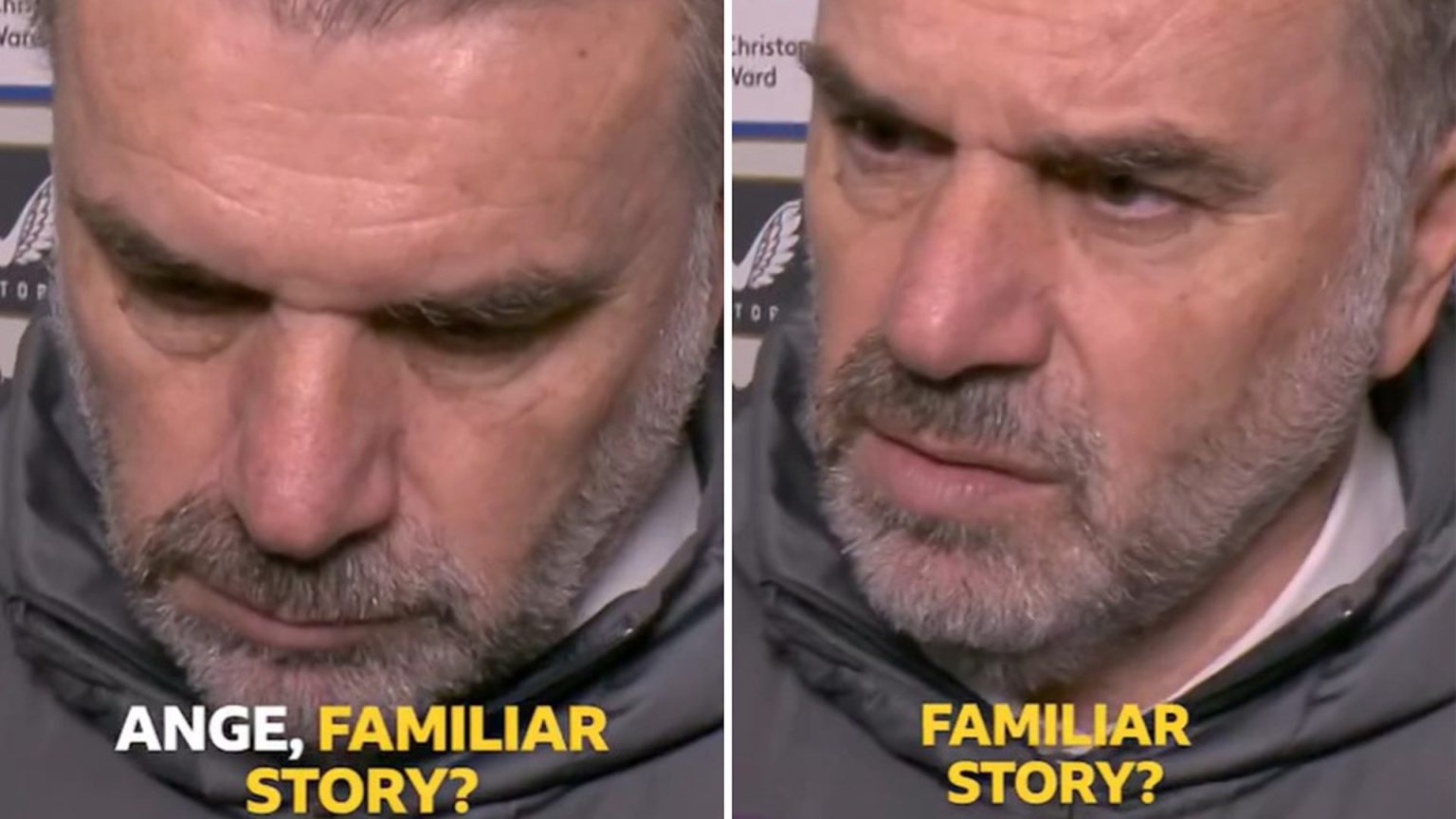Ange Postecoglou’s post-match interview following Tottenham Hotspur’s 3-2 defeat to Everton at Goodison Park became a flashpoint of frustration for the Australian manager. The exchange with a BBC Sport reporter began on a sour note, immediately igniting Postecoglou’s ire. The reporter’s opening remark, “Familiar story,” referencing Tottenham’s recent string of losses, rubbed the manager the wrong way. Postecoglou visibly bristled, questioning the reporter’s phrasing and expressing his displeasure at the perceived negativity. This initial exchange set the tone for a tense interview, highlighting the mounting pressure on Postecoglou as Tottenham’s winless streak extended to six Premier League games.
The defeat itself was another chapter in Tottenham’s unfolding struggles. Everton, a team also mired in the lower echelons of the table, capitalized on Tottenham’s defensive vulnerabilities, racing to a three-goal lead by halftime. Dominic Calvert-Lewin, Iliman Ndiaye, and an unfortunate own goal from Archie Gray put Everton firmly in control. Despite a late rally with goals from Dejan Kulusevski and Richarlison, Tottenham couldn’t overcome their early deficit, leaving Goodison Park with another demoralizing loss. The result amplified concerns about Tottenham’s form, raising questions about their ability to compete effectively in the league.
Postecoglou’s post-match demeanor reflected the gravity of the situation. Beyond his irritation with the reporter’s opening question, the manager appeared visibly frustrated with his team’s performance. He acknowledged the team’s inefficiencies, particularly in the first half, and emphasized the need for improvement. The loss to Everton extended Tottenham’s winless streak to a concerning length, harkening back to a similar period of futility in 2009 that ultimately led to the dismissal of then-manager Juande Ramos. The parallels to that era undoubtedly added to the pressure on Postecoglou, with chairman Daniel Levy a silent observer of the unfolding crisis from the stands.
The weight of expectation at Tottenham is immense, and a prolonged period of underperformance rarely goes unaddressed. The club’s ambition to compete at the highest level of English football demands consistent results, something that has eluded them under Postecoglou’s tenure thus far. The recent string of losses has placed the manager firmly under the microscope, with speculation about his future mounting. The betting odds, often a barometer of public sentiment and insider knowledge, have shifted to place Postecoglou as the frontrunner for the next Premier League managerial sacking. This reflects the growing sense of unease surrounding his position and the perceived lack of progress on the pitch.
The “familiar story” comment from the BBC reporter, though perhaps unintentional in its pointedness, struck a nerve with Postecoglou because it encapsulated the narrative surrounding his time at Tottenham so far: a cycle of unmet expectations and disappointing results. The manager arrived with a reputation for attacking, free-flowing football, honed during successful spells at Celtic and with the Australian national team. However, that style of play has yet to translate consistently into positive outcomes in the Premier League. The defensive frailties on display against Everton, coupled with the inability to convert possession into goals, have become recurring themes, contributing to the mounting pressure on Postecoglou.
The road ahead for Postecoglou and Tottenham is fraught with challenges. The manager must find a way to quickly address the team’s defensive vulnerabilities and instill a greater sense of resilience. He needs to find the right balance between his attacking philosophy and the pragmatic demands of the Premier League, ensuring that the team is both entertaining and effective. The pressure from the board, the fans, and the media will only intensify with each negative result, and Postecoglou will need to demonstrate his managerial acumen to navigate this turbulent period and steer Tottenham back on course. The ticking clock of expectation is a constant reminder of the precarious nature of his position.




